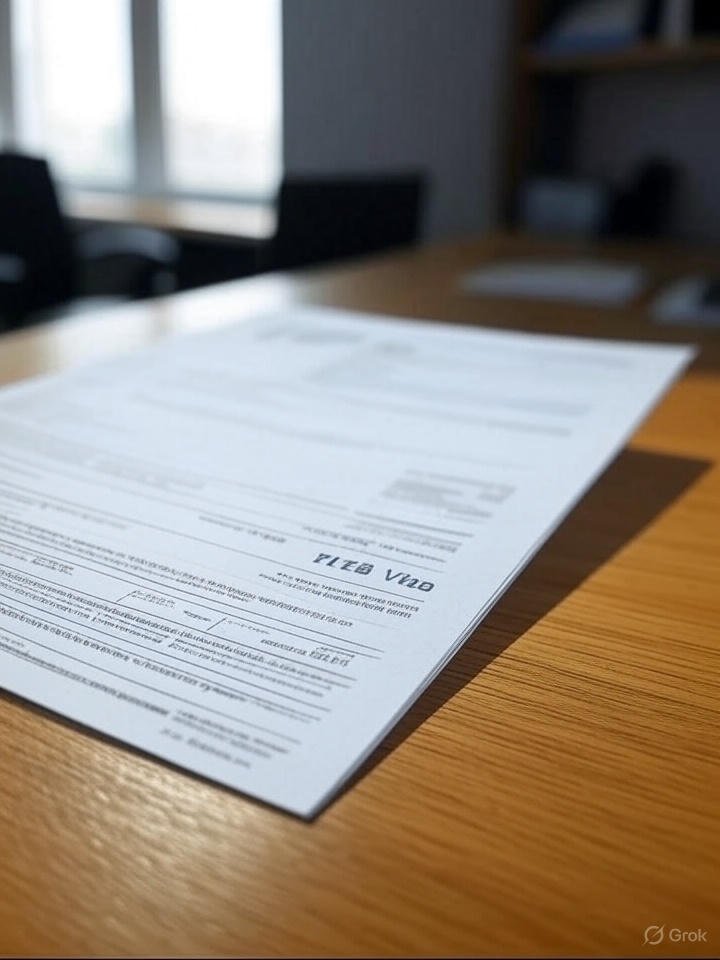Nursing jobs in the UK for registered nurses is one of the rewarding career in one of the world’s most respected healthcare systems. Picture yourself working in a bustling London hospital or a serene rural clinic, making a difference in patients’ lives while building a stable future.
The UK’s National Health Service (NHS) and private healthcare sectors are actively looking for skilled nurses, with over 40,000 nursing vacancies reported in 2024 (NHS England, 2024).
But for registered nurses, especially those from overseas, the pathway to securing these jobs can be difficult. This guide breaks down everything you need to know, from visas to qualifications, with practical tips and a real-life success story to inspire you.
Advertisements
You have been blocked from seeing ads.
';
endif;
?>
Why the UK Is a Top Destination for Registered Nurses
The UK’s healthcare system is a global benchmark, offering registered nurses competitive salaries, professional growth, and a chance to work in diverse settings. From acute care in city hospitals to community nursing in quaint towns, the opportunities are vast.
The NHS, the UK’s largest employer, is particularly welcoming to international nurses, with streamlined processes for overseas applicants. Private hospitals and care homes also offer lucrative roles, often with perks like relocation support.
Beyond the job, the UK boasts a rich cultural tapestry, excellent work-life balance, and pathways to permanent residency.
For registered nurses, the demand is undeniable—nursing remains on the UK’s Shortage Occupation List, meaning faster visa processing and higher job security (UK Home Office, 2024).
Understanding the Visa Landscape
To work as a registered nurse in the UK, you’ll need the right visa. The Health and Care Worker Visa is the go-to option for nurses.
It allows you to work for an approved employer (like the NHS) for up to five years and is often a stepping stone to permanent residency. Key requirements include:
- A job offer from a UK employer with a sponsor license.
- Registration with the Nursing and Midwifery Council (NMC).
- Proof of English proficiency via IELTS (minimum 7.0 in each band) or OET (grade B or higher).
For those eyeing regional roles, the Skilled Worker Visa can also apply, especially for private sector jobs. Always check the UK Visa and Immigration website for the latest eligibility criteria.
Disclaimer: Visa eligibility depends on your qualifications, job offer, and compliance with UK immigration rules. Consult a licensed immigration advisor for personalized guidance.
Navigating the NMC Registration Process
Before you can practice as a registered nurse in the UK, you must register with the NMC. This process ensures your qualifications meet UK standards. Here’s a step-by-step guide:
1. Check Eligibility
Your nursing degree or diploma must align with UK standards. Nurses trained in countries like India, the Philippines, or Nigeria often qualify, but you’ll need to provide transcripts and proof of clinical experience.
2. Pass the Test of Competence (ToC)
The ToC has two parts:
- Computer-Based Test (CBT): A multiple-choice exam on nursing theory, taken in your home country.
- Objective Structured Clinical Examination (OSCE): A practical test conducted in the UK, assessing clinical skills.
Unique Tip: Use online platforms like Nurse Abroad for CBT practice questions tailored to the NMC syllabus. Join study groups on WhatsApp or Facebook to connect with other international nurses.
3. Submit Documents
Provide your nursing qualifications, professional references, and proof of good standing from your home country’s nursing board.
4. Prove English Proficiency
The IELTS or OET is non-negotiable. If English isn’t your first language, start preparing early. Many nurses find OET easier, as it’s tailored to healthcare scenarios.
5. Pay Fees and Finalize
The NMC registration fee is around £140, with additional costs for the CBT (£83) and OSCE (£794). Budget accordingly, as these are non-refundable.
Top Regions for Nursing Jobs in the UK
The UK’s regions offer diverse opportunities for registered nurses. Here’s a snapshot:
London: The Healthcare Hub
London’s hospitals, like Guy’s and St Thomas’, are always hiring. Specialties like critical care and pediatrics are in high demand. Expect salaries from £30,000 to £45,000 annually (NHS Jobs, 2024).
North West England: Community Focus
Manchester and Liverpool have thriving community nursing roles, ideal for those who enjoy patient-centered care outside hospitals.
Scotland: Rural and Urban Balance
Glasgow and rural areas like the Highlands need nurses for general practice and mental health. Scotland’s NHS offers relocation packages for international nurses.
Wales: Growing Opportunities
Cardiff’s hospitals and care homes are expanding, with a focus on elderly care and surgical nursing.
How to Find Nursing Jobs in the UK
Landing a nursing job requires strategy. Here’s how to get started:
1. Explore NHS Jobs
The NHS Jobs website is your first stop. Filter for roles open to international applicants and check for “visa sponsorship” in the listing.
2. Partner with Recruitment Agencies
Agencies like Pulse Nursing and Kate Cowhig International Healthcare Recruitment specialize in placing overseas nurses. They often guide you through the NMC process and visa applications.
3. Leverage LinkedIn
Follow NHS trusts and private hospitals on LinkedIn. Engage with their posts and connect with recruiters. Many trusts post job openings directly on the platform.
4. Attend Virtual Job Fairs
Events like the NHS International Recruitment Fairs connect nurses with employers. Prepare a digital portfolio showcasing your skills and certifications.
5. Prepare for Interviews
UK interviews focus on clinical competence and patient care. Be ready to discuss scenarios, like managing a patient with dementia or handling a busy ward. Practice with a mentor or use platforms like InterviewBuddy for mock interviews.
Unique Tip: Create a professional blog or portfolio showcasing your nursing journey. Share case studies or reflections on patient care to stand out to employers.
Success Story: Priya’s Path to the NHS
Priya, a registered nurse from India, always dreamed of working in the NHS. After passing her IELTS and CBT, she applied through a recruitment agency and secured a role in a Manchester hospital.
The hospital sponsored her Health and Care Worker Visa, and she aced her OSCE with support from her employer’s training program.
“The process was intense,” Priya shares, “but the support from my agency and colleagues made it achievable. Now, I love my job and the chance to grow professionally.” Today, Priya is a senior nurse and mentoring other international nurses.
Challenges and Solutions
International nurses face hurdles like cultural adaptation, exam costs, and homesickness. Here’s how to overcome them:
- Cultural Adaptation: Learn UK healthcare protocols, like patient confidentiality rules, through free NHS e-learning modules.
- Exam Costs: Save for NMC fees by freelancing or teaching nursing skills in your home country before moving.
- Homesickness: Join expat nurse communities on platforms like Expat.com to build a support network.
Benefits of Nursing in the UK
Working as a registered nurse in the UK comes with perks:
- Competitive Salaries: Starting salaries range from £28,000 to £35,000, with senior roles exceeding £50,000 (NHS Jobs, 2024).
- Career Growth: The NHS offers funded training for specializations like midwifery or oncology.
- Work-Life Balance: Most roles offer 37.5-hour weeks, generous leave, and pension schemes.
Disclaimer: Salaries vary by role, experience, and location. Check specific job listings for accurate figures.
Common Mistakes to Avoid
- Skipping IELTS/OET Preparation: Failing the English test delays your NMC registration. Invest in quality prep courses.
- Ignoring Regional Roles: Don’t focus only on London. Rural areas like Cornwall offer less competition and relocation perks.
- Generic Applications: Tailor your CV to highlight UK-relevant skills, like familiarity with electronic health records.
FAQs About Nursing Jobs in the UK for Registered Nurses
Can I Apply Without NMC Registration?
No, you must complete NMC registration before practicing. However, you can secure a job offer first, as many employers support the process.
How Long Does the Process Take?
From visa application to NMC registration, expect 6-12 months, depending on your preparedness and exam results.
Are Private Sector Jobs Worth It?
Yes, private hospitals often offer higher salaries and flexible hours, but NHS roles provide better job security and benefits.
People also read: UnlStates Jobs in Australia for International Applicants
Ready to kickstart your UK nursing career? Start by preparing for the IELTS or OET, researching NHS and private sector jobs, and connecting with recruitment agencies.
Tailor your CV, practice for interviews, and explore regional opportunities. With dedication, you’ll soon be making a difference in the UK’s healthcare system.
Success Story: James’ Leap to Scotland
James, a nurse from Nigeria, landed a mental health nursing role in Glasgow. Initially overwhelmed by the NMC process, he used online forums to connect with mentors who guided him through the OSCE.
His employer provided relocation support, and today, James is thriving in Scotland’s supportive NHS community. “It’s about persistence,” he says. “Every step is worth it.”





